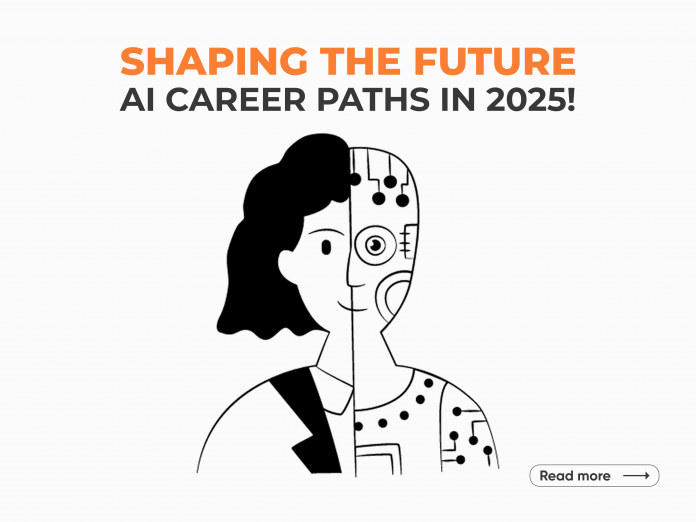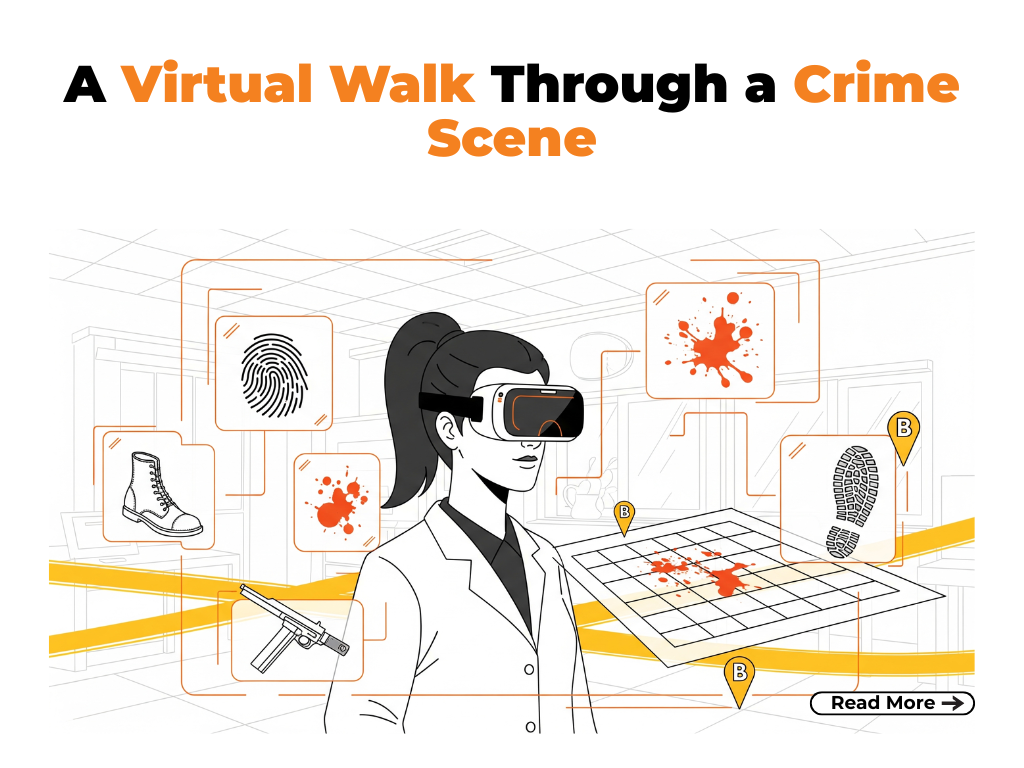Career Opportunities in Artificial Intelligence in 2025 : Artificial Intelligence (AI) is no longer a futuristic concept; it is here, shaping industries and transforming the job market. As we step into 2025, career opportunities in artificial intelligence are expanding rapidly, offering exciting possibilities for professionals with the right skills. The integration of AI across industries has created an unprecedented demand for AI specialists, making careers in AI one of the most lucrative paths of the future. Whether you’re an aspiring AI engineer, data scientist, or AI strategist, this blog will guide you through the top job roles, essential skills, and industries actively hiring AI experts.
Why AI Careers Are in Demand?
AI is expected to contribute over $1.8 trillion to the global economy by 2030. Businesses are adopting AI to improve efficiency, enhance decision-making, and create smarter products. The ability of AI to automate processes, analyze vast amounts of data, and improve user experiences has made it indispensable across industries. From healthcare to finance and e-commerce, AI applications are growing rapidly, leading to a massive surge in job opportunities for AI specialists.
Companies are actively seeking AI professionals to fill roles such as data scientists, machine learning engineers, and AI ethicists. The global workforce is also shifting towards AI-centric roles, with universities and institutions offering specialized AI courses to bridge the skill gap. This surge in demand means that now is the perfect time to enter the AI field and secure a stable, high-paying career.
Top Career Opportunities in Artificial Intelligence (AI) Paths in 2025
- Machine Learning Engineer
Machine learning engineers are responsible for designing and developing models that enable computers to learn and improve from experience. This role requires expertise in Python, R, and frameworks like TensorFlow and PyTorch. A strong understanding of data structures and algorithms is also necessary to excel in this field.
- Data Scientist
Data scientists use AI-driven techniques to analyze massive datasets, extract insights, and solve real-world problems. They work with machine learning tools, statistical models, and programming languages like Python and SQL. The role involves handling structured and unstructured data, identifying patterns, and making data-driven decisions.
- AI Research Scientist
AI research scientists explore new AI models and techniques, often working in academia or R&D labs. They develop cutting-edge AI algorithms and applications that push the boundaries of technology. A strong mathematical and programming background, combined with experience in deep learning and neural networks, is essential for this role.
- AI Ethics Consultant
With AI’s rapid adoption, ethical concerns around bias, fairness, and privacy are rising. AI ethics consultants ensure AI systems adhere to ethical guidelines and regulations, collaborating with policymakers, businesses, and tech teams to create responsible AI applications.
- Robotics Engineer
AI-powered robots are revolutionizing industries like healthcare, manufacturing, and space exploration. Robotics engineers develop intelligent robots using AI, control systems, and hardware programming. They design autonomous systems that enhance efficiency and reduce human intervention in complex tasks.
- AI Product Manager
AI product managers bridge the gap between business needs and AI capabilities. They oversee AI-driven product development, ensuring alignment with market demands. This role requires a combination of leadership, AI knowledge, and business acumen to manage AI-powered products successfully.
- AI Consultant
AI consultants help organizations implement AI strategies and optimize operations. They analyze business challenges and suggest AI-driven solutions, requiring both technical expertise and strategic thinking. Many companies hire AI consultants to improve productivity, automate processes, and gain a competitive edge.
Industries Embracing AI
- Healthcare
AI is transforming healthcare with predictive analytics, AI-driven diagnosis, and robotic surgeries. Careers in this field include AI specialists working on medical imaging, virtual health assistants, and personalized treatment models. AI helps doctors diagnose diseases more accurately and offers real-time patient monitoring solutions.
- Finance
AI is essential for fraud detection, algorithmic trading, and customer service automation. AI professionals in finance develop risk assessment tools, chatbots, and predictive analytics models. The ability of AI to analyze large financial datasets helps financial institutions make data-driven investment decisions and detect fraudulent activities in real time.
- Retail and E-commerce
Retailers leverage AI to personalize recommendations, automate marketing, and optimize inventory. AI professionals work on recommendation engines, chatbots, and AI-driven analytics that enhance customer experiences. AI also streamlines supply chain operations, making logistics and inventory management more efficient.
- Manufacturing and Automation
Smart factories rely on AI-powered robots and predictive maintenance to streamline operations. AI experts develop automation systems that improve efficiency and reduce downtime. AI-driven quality control systems help manufacturers detect defects and enhance production processes.
- Cybersecurity
AI enhances cybersecurity by detecting threats, analyzing risks, and preventing cyberattacks. AI specialists in this field work on intrusion detection and automated security solutions. AI-powered security systems can identify and neutralize threats faster than traditional methods, helping organizations protect sensitive data.
Skills Needed for an AI Career
Technical Skills:
- Proficiency in Python, R, Java, or C++
- Understanding of machine learning & deep learning
- Knowledge of statistics, probability, and linear algebra
- Experience with big data tools like Hadoop & Spark
- Familiarity with cloud platforms such as AWS, Google Cloud, or Azure
Soft Skills:
- Strong problem-solving ability
- Effective communication to explain AI concepts
- Creativity to innovate AI-driven solutions
- Ethical awareness to ensure unbiased AI systems
How to Prepare for an AI Career?
To stay ahead in this fast-evolving field, continuous learning is essential. Here are some top AI courses and certifications for 2025:
- Btech CSE with Artificial Intelligence
Google AI Certification – Ideal for aspiring AI engineers - Microsoft Azure AI Engineer Certification – Focused on cloud-based AI applications
- IBM AI Engineering Professional Certificate – Covers deep learning and AI fundamentals
- Coursera’s Machine Learning by Andrew Ng – A must-have for AI beginners
- Udacity’s AI for Business Leaders – Perfect for professionals integrating AI into their businesses
Apart from certifications, gaining practical experience through AI projects, internships, and open-source contributions can significantly boost career prospects. Building a portfolio showcasing AI-driven solutions will help aspiring professionals stand out in the competitive job market.
Final Thoughts
AI is shaping the future of work, and career opportunities in this field are expanding rapidly. Whether you’re an experienced tech professional or a newcomer, AI offers a wide range of roles across industries. As AI continues to evolve, the demand for skilled professionals will only grow. By acquiring the right skills and staying updated with AI advancements, you can position yourself for success in the AI-driven job market of 2025 and beyond.
Are you ready to embark on an AI career? Start learning today and step into a future full of possibilities!




![Career Paths After B.Sc. Information Technology [Lateral Entry] Career Paths after B.Sc. Information Technology [Lateral Entry]](https://www.lpu.in/blog/wp-content/uploads/2026/01/Career-Paths-after-B.Sc_.-Information-Technology-Lateral-Entry-218x150.png)






![Is B.Tech. Chemical Engineering [Lateral Entry] the Right Course for You? Is B.Tech. Chemical Engineering [Lateral Entry] the Right Course for You](https://www.lpu.in/blog/wp-content/uploads/2025/11/Is-B.Tech_.-Chemical-Engineering-Lateral-Entry-the-Right-Course-for-You-100x70.png)


